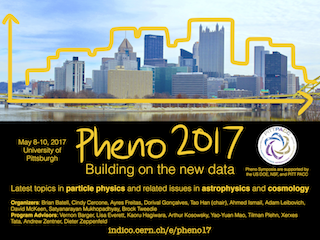Speaker
Description
Hoop conjecture allows the formation of black holes through the collision of particles. We consider a system consisting of massless bosons at a finite temperature and analyze the formation of black holes using hoop conjecture in an expanding universe in the slow expansion limit (HRS < <1). We found that the black hole number density increases rapidly with the temperature of background radiation and decreases due to the expansion of space-time via Hubble constant. We evolved the system, incorporating the Hawking evaporation and the accretion of matter by black holes and found that black holes and radiation cannot coexist in stable equilibrium. In an expanding universe, unlike flat space-time, black hole number density never dominates over the number density of background radiation at any temperature below Planck temperature. Our study sheds light on the formation of primordial black holes in the early universe.
